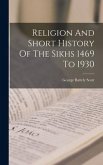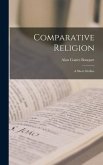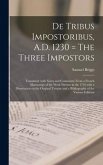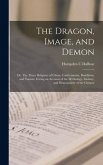"Ferdinand Ulrich has been hailed by some as one of the greatest Catholic philosophers of the Twentieth Century. Though he ceased writing in the 1980s, his works are only now being translated into English. The three works collected in this volume present dimensions of Ulrich's unique philosophical anthropology, which he developed in the light of the metaphysics laid out in Homo Abyssus. The first work, Atheism and Incarnation, reflects on man's personal and cultural attempt to be fully human in the context of contemporary culture, showing how the question of God emerges right at the heart of this effort. The second work, Man in the Beginning: Towards a Philosophical Anthropology of Childhood, offers a remarkable metaphysical exploration of the child's development of personality in relation to his mother and father, in critical dialogue with several "prophets" of modern thought: Hegel, Marx, Nietzsche, and Freud. He shows that, far from presenting a problem that needs to be resolved or overcome, the child reveals a fundamental truth about human existence: namely, that we become ourselves in receiving ourselves from others. The third work, Prayer as the Fundamental Act of the Creature, presents what Hans Urs von Balthasar called a "summa" on prayer, which contains everything essential. One of the things that makes Ulrich's essay unique is his rooting of prayer, and so the encounter with God, in the person's very act of existence. This approach brings to light depths of the spiritual life that have rarely been explored before. Altogether, the three works offer a pathway into Ulrich's philosophy that is more accessible than that given in Homo Abyssus, and show some of the concrete implications of that earlier, groundbreaking work"--
Hinweis: Dieser Artikel kann nur an eine deutsche Lieferadresse ausgeliefert werden.
Hinweis: Dieser Artikel kann nur an eine deutsche Lieferadresse ausgeliefert werden.




![A Short History of Freethought, Ancient and Modern [microform] A Short History of Freethought, Ancient and Modern [microform]](https://bilder.buecher.de/produkte/66/66116/66116610m.jpg)
![Short Sunday Services [microform]: Being Simple Forms of Prayer and Praise for the Use of Christians on the Lord's Day When They Are at a Distance Fro Short Sunday Services [microform]: Being Simple Forms of Prayer and Praise for the Use of Christians on the Lord's Day When They Are at a Distance Fro](https://bilder.buecher.de/produkte/68/68727/68727496m.jpg)


![The Works of the Right Honourable Edmund Burke, Collected in Three Volumes. Vol. I.[-Iii.].; Volume 2 The Works of the Right Honourable Edmund Burke, Collected in Three Volumes. Vol. I.[-Iii.].; Volume 2](https://bilder.buecher.de/produkte/68/68635/68635755m.jpg)